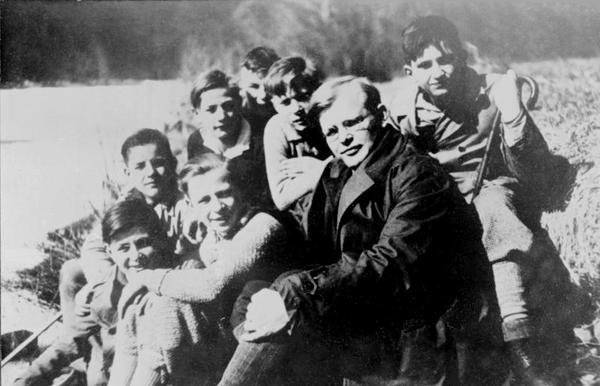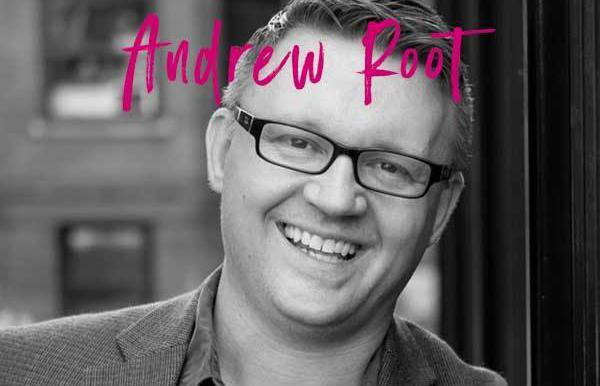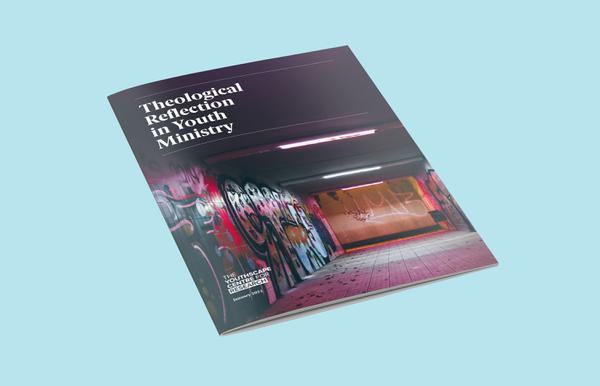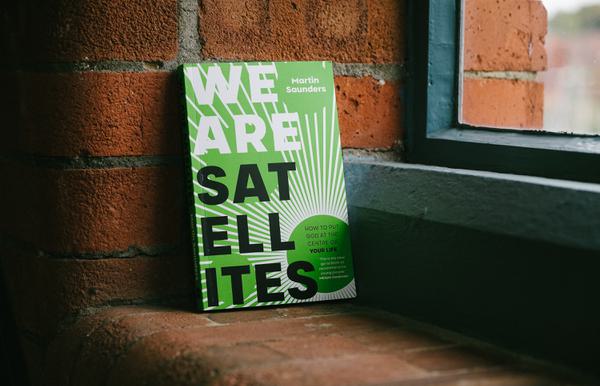Covid restrictions are easing. The return of in-person youth work offers a chance for refreshing your ministry, but what if it – and young people – need something more radical?
I have recently moved. For the last six years, I’ve been living and ministering in Vienna, a bustling and international capital city. But that all changed when, at the end of 2020, I was called to be a pastor in the small town of Bad Ischl. So, we packed our things and moved (during a pandemic) to the middle of the Salzkammergut region of the Austrian Alps.
Moving from a big city to a rural area means learning new rhythms of living. We needed to learn that we can't just order takeaway from a thousand different restaurants whenever we get hungry. We had to buy a car. But one of things that most surprised me is getting used to the fact that everyone here in the Salzkammergut loves home renovations. Seriously. Everyone in my new church is either building, renovating, knocking down a wall, or installing solar panels.
Now, I've been attempting to learn about this new passion (my own DIY skills barely stretch to hanging up a picture). As far as I can tell, there seem to be two ways of approaching the task. For some, renovation just means cosmetic changes: repainting, installing some new wood flooring, or possibly changing the kitchen. But, for others, renovating means something much more drastic. It means tearing things down to the ground because the old structure is no longer fit for purpose and then rebuilding something new from the ground up.
Repainting youth work in a secular age
It was whilst learning about building and renovation that I read Andrew Root's Faith Formation in a Secular Age, and I think the similarities are helpful. I think if Andrew were to talk to some of the people in my church about his book, he would say that a lot of new thinking in church-based youth work looks like trying to repaint a wall, or take out the disgusting germ trap that is carpet and replace it with something hygienic (like wood…maybe that is just my own personal hang-up). But I think he would also say this: the problem is that we often haven't noticed that the old structure is no longer good. The plumbing was built for an age before everyone had a washing machine and a dishwasher and a power shower. The electrics are no longer safe. Some of the load-bearing walls have dry rot. If Andrew is right in what he says in his book (and I think he is), he would say that a new coat of paint is no longer going to cut it. We need to look at tearing some stuff down to the ground and rebuilding to suit the new conditions.
So what is it that Andrew Root sees? Well, to understand that, we need to look a little bit at the history of the Western world and what the Canadian philosopher Charles Taylor has called 'Our Secular Age'. Secular, in Charles Taylor's view, doesn't mean a world without religion, but something more. It means that all belief systems are fundamentally contestable and up for grabs. The game is to come up with a system of beliefs that are 'authentic' – that I subjectively identify with. So I could really passionately identify as a Christian, and that could be part of my identity, but I could also be equally passionate about animal rights or the importance of chamomile essential oils on my pillow or preventing climate change. The important thing is that I find a system of beliefs that I can commit to and that are authentically 'mine'.
"An enormous amount of effort has been put in place to 'sell' Christianity...as a lifestyle choice that 'works', that helps you be your authentic self."
Now, we need to see how new this phenomenon is. 'New', by the way, doesn't mean 'bad' – this is not an article about how everything was much better a hundred years ago when young people were seen and not heard and sex only happened between married adults once a year after a scone and jam tea, whilst listening to the national anthem on the gramophone to make sure they didn't enjoy themselves too much. 'New' simply means, well, 'new'.
You see (to make a really long and complicated history short), back in the Middle Ages, people couldn't really choose their belief systems in the same way as we do now. God was just a stable part of the way the world was. Our world was what Taylor called 'enchanted' – full of God and demons and angels. Human beings were 'porous' – these cosmic realities just shaped our lives: our moods, whether we had a good harvest or not, whether we got sick.

Little by little (and again, this is a very long history made short), things began to change. Various things contributed to this: the Enlightenment and the rise of the individual thinker played a role, as did various 19th century movements emphasising the role of emotions and feelings in the way we assess truth. Our identity as human beings wasn't just something that dripped into us from the enchanted world. It's something we discovered and created for ourselves free from outside influences. And, more and more, it's something that we had to feel good about. Andrew Root calls this idea that we have to feel good about our beliefs and our identity 'youthfulness'.
The rise of the authentic individual
The story of youthfulness is also complex (and I am simplifying it to stop this article from becoming too long). The need to rebuild Western economies after the Second World War led to the rise of a new kind of individual: the consumer. The consumer needed to be persuaded to buy not just what they needed (for example, a shelf for their book), but what they might want or what might fulfil them (for example a hand-crafted oak bookcase made from reclaimed oak with little farty details around the edges). Add into this the background of the Cold War, and consuming isn't just something that completes my identity, it is an expression of my identity: I consume because I am American/British and keeping the economy safe from those nasty Soviets.
"Why are Donald Trump and Boris Johnson so attractive for a lot of people? Because they are the ultimate authentic individuals, doing their own thing and not caring what everyone else thinks."
At the same time, there was a reaction against conformity: to conform to what everyone else was doing was 'inauthentic' and weak. No: this was about becoming your own person, making your own truth. This is what the Sexual Revolution was about: sex, drugs and rock and roll were ways of accessing the true authentic person that The System was repressing. The good life: that was the authentic life, not chained to the rules of The System, but roaming freely. Why are Donald Trump and Boris Johnson so attractive for a lot of people? Because they are the ultimate authentic individuals, doing their own thing and not caring what everyone else thinks.
Ironically, the first story (the nation of consumers) saw the second story (the unrepressed self) and thought, 'Great! I can sell that'. Remember that bookcase? You need that bookcase because you are the kind of person who appreciates beautiful reclaimed oak, unlike your friends who conform with their IKEA Billy bookcases.
Now, at this point, you are maybe wondering what this all has to do with youth ministry. Well Andrew Root puts it this way: a lot of this story is about defining ourselves through our affiliation and getting rid of everything that is not seen as being 'authentic'. That has made Christians nervous. So a lot of energy in youth work has talked about how to stop young people from...well, from getting rid of church in their attempt to become authentic. Or, alternatively, to make Christian faith 'robust' enough or 'sticky' enough that, if we all hope and pray enough, teenagers won't discard it when they go through the crisis of young adulthood.
"We are trying to sell Christianity as a product in a world where the authentic individual is the only reality and where the idea of God cannot be taken seriously. And even if it is taken seriously, it is only as an accessory in my search for my own authentic meaning."
An enormous amount of effort has been put in place to 'sell' Christianity, to recruit 'influencers' who draw others into affiliating with Christian organisations or into affiliating with church. Effectively, it’s an attempt to sell Christianity as a lifestyle choice that 'works', that helps you be your authentic self. If we all work hard enough and sell hard enough and convince hard enough, young people will continue to add Jesus into the framework of beliefs they choose for their authentic selves.

"Please don't leave us."
Can you feel how much anxiety is in this process when we see it this way? Everything depends on our effort in selling Christianity and making it attractive in the marketplace of potential ideas. We're no longer trusting that Jesus makes himself known and available. Instead, we have to do the work ourselves. Christianity, we tell our young people, is plausible. It is sustainable. It is dependeable. Or, if nothing else, our youth ministry is entertaining and fun. Please don't leave us. Please.
Andrew Root argues the problem with this isn't just that it is hugely anxious and exhausting (which it is) but, more importantly, that it is doomed to fail. We are trying to sell Christianity as a product (come and take on 'church' as part of your identity) in a world where the authentic individual is the only reality and where the idea of God cannot be taken seriously. And even if it is taken seriously, it is only as an accessory in my search for my own authentic meaning.
To go back to my house renovations: we are trying to install a flashy new oven in a kitchen rebuild whilst not noticing that the electric system can't support it and the wall behind the oven is rotten. We need to go back and attend to the wiring and sort out that wall and maybe check the plumbing while we’re at it.
Now, all of this might seem a bit heartbreaking. After all, our youth ministry programmes and ideas to help teenagers develop a robust faith come from the best motivations. We want teenagers to know Jesus. We want them to be part of the church. We want them to have an authentic faith. And now we hear that this a strategy that is doomed to fail? Ouch. That hurts.
Failure is the beginning of freedom
But Andrew Root doesn't leave us there. Instead, he takes us back to Jesus and back to Bible. He reminds us that, in the Bible's world, failure – both our own failure to discover and create our authentic selves, and also the failure of our youth programmes to compete in an overcrowded marketplace – is the beginning of freedom. After all, we serve a God who, in the words of Romans 4, raises the dead to life and calls into being things that are not. When we stop our anxious frenzy of activity, we can discover that God is actually surprisingly active and capable of making himself known.
Andrew Root goes on to think about what God making himself known might entail. Faith comes, in the Bible, not through adding one more identity into our already crowded authentic self. Instead, it comes through an experience of the cross, dying to ourselves and discovering that this in fact leads to new life. What is it that makes this possible? It is the experience of being found in Jesus and experiencing his presence – not in the success stories of life, those things that we can easily market, but in the moments of our weakness and failure.
Jesus enters into our brokenness and gives us not a new identity marker or a new strategy for authentic living, but instead gives us himself. And his story for us becomes the story we live for others. We discover that his story is more compelling than trying to chase our own identity and create our own authenticity (and it’s definitely a heck of a lot less exhausting). We discover ourselves taken into his pattern of life.
Or, to go back to our house metaphor: the foundations are bad, so we have to tear down the old house. And so we rebuild it again, with Jesus as both the blueprint and the master builder.
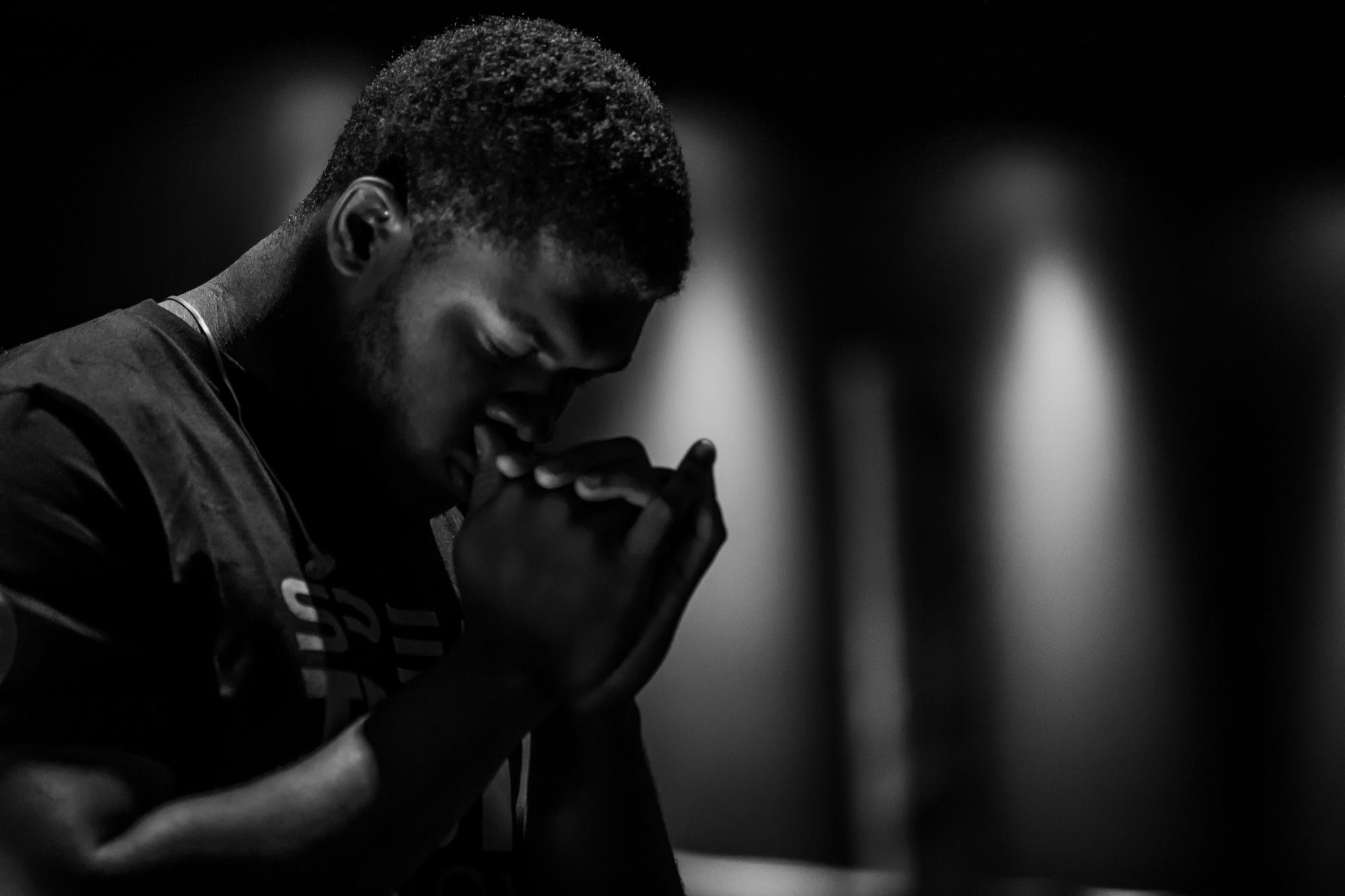
New foundations
Andrew Root's book isn't meant to be heartbreaking or discouraging. And it definitely doesn’t aim to call our motives into question. He’s helping us understand why we are where we are, and to see how some of the assumptions that underpin our youth ministry may be damaging us more than they are helping us. And then he’s here to help us knock down those old walls, clear away the rubbish, get back down to the foundations and build something new in their place.
His is an invitation to relax: not to work out of a constant anxiety that if I am not entertaining enough or relevant enough or skilled enough as a youth minister, then the next generation is lost. Instead, he invites us to trust in Jesus, the true youth minister, (and let's be honest – Jesus is a lot better at it than we are) and then to work as youth ministers to help our young people pay attention to the dynamics of divine presence: the call to love our neighbour; to minister to those around us; to share stories of Jesus' resurrection power in our moments of death and failure; and to come back to spiritual disciplines such as gratitude, which is the reminder we don't have to fight to create our authentic selves, but we receive them as a gift long before we ever give anything ourselves.
And it is an invitation to rest. Because, as the German theologian Dietrich Bonhoeffer told us and as Andrew Root reminds us, the future of the Church is not predicated on youthfulness and on our ability to get the next generation into the institution. No, the future of the Church is Jesus Christ, the one who ever lives and reigns. And so we can do our bit of work on the building site – we can install those beams and sort out that cladding – and then we can stop at the end of the day and take a day off, because Jesus the Youth Minister is still working.
David is a British pastor ministering in a church in Bad Ischl, Austria. He also leads the Austrian Baptist Union Youth and Children's Department, where he seeks to help equip volunteers and churches to do great youth and children's work. He lives in the middle of the Alps with his family and an ever growing collection of balcony plants.




